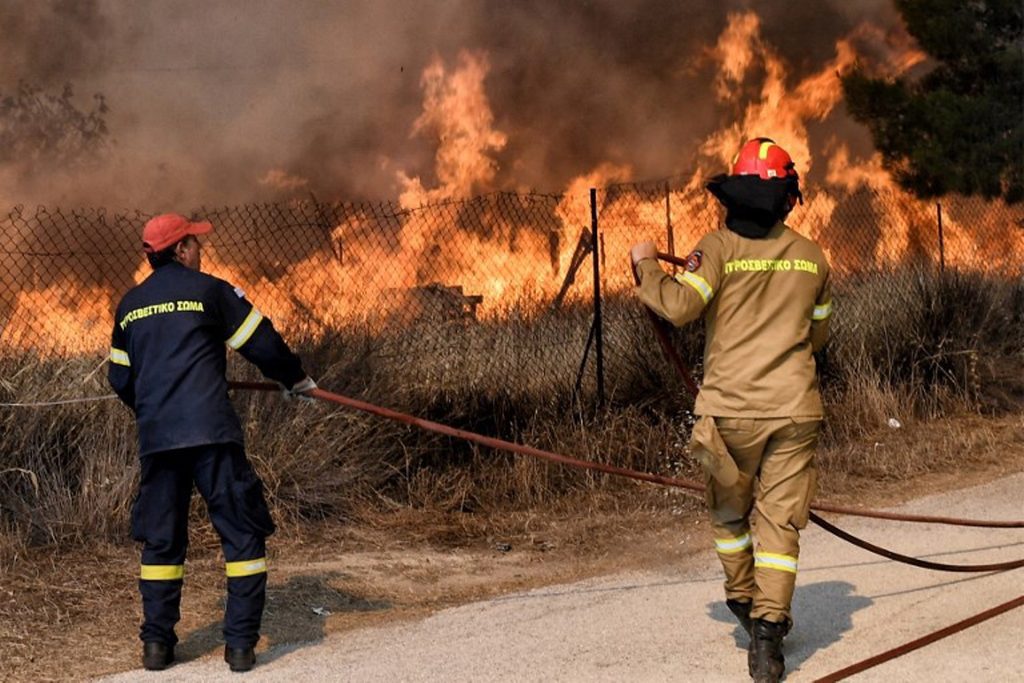Europe is currently grappling with devastating wildfires, fueled by scorching temperatures reaching 40°C and extremely dry conditions caused by an ongoing heatwave named Cerberus.
Southern European countries, including Greece, Spain and Italy, have been particularly hard-hit, witnessing uncontrollable infernos.
Despite not experiencing the same scale and severity of wildfires as other countries, Belgium is not completely immune to destructive forest fires. While fires in Belgium may be less widespread and serious compared to other parts of the world, specific regions, such as the Haute Fagnes, are prone to such incidents.
The Fens region has witnessed forest fires in the past, including a major one in 1911 that burned approximately 4,000 hectares of heathland and forests. In 2011, another fire consumed 1,300 hectares of the nature reserve. These examples demonstrate the potential for large-scale fires in certain areas of Belgium.
Climate change plays a significant role in increasing the risk of forest fires in Belgium. Drying vegetation resulting from climate change contributes to a higher probability of fire ignitions. In dry fields, even a single spark can ignite a fire, which can quickly spread and destroy a large area of fields or forests.
To address these challenges, Colonel Francis Cloth, commander of the DG rescue zone covering the German-speaking community, emphasised in a recent report in Le Soir the importance of learning from regions that have a culture of risk and effective practices.
Training programmes and preventative measures
Belgium is actively working on improving its firefighting capabilities, including learning from experienced firefighters in the Var region of France. Training programmes are being developed and delivered to firefighters across the country to enhance their skills in combating forest fires.
Local authorities have also started to implement strict preventive measures, such as banning fires and smoking in forest areas, to prevent the spread of seasonal fires. The period conducive to forest fires typically runs from June to August, but it is anticipated to last longer in the future, adding to the need for better management and prevention.
Additionally, the Department of Nature and Forests (DNF) in the Walloon Region is implementing measures to manage specific territories more effectively. In Belgium, forest fire management focuses less on extinguishing fires and more on isolating them and channelling them in favourable directions. The type of vegetation and wind direction must be considered when extinguishing fires.
The restoration of peat bogs, which act as natural sponges, is also being pursued to mitigate the impact of fires and enhance the overall resilience of affected ecosystems.
Moreover, forestry professionals in Belgium are contributing to the preventative measures by planting a variety of tree species and digging small trenches to prevent fire spread and organise forest land into smaller plots.
Most fires are believed to be unintentionally caused by humans. Common sources include barbecues, cigarette butts, broken glass left under the sun, and heat from vehicles. Hot engines from vehicles such as combine harvesters or tractors can catch fire and contribute to the spread of fires.
Related News
- World must prepare for 'more intense heatwaves,' warns UN
- Controlled fires a success in Greece, says WWF
In some cases, however, fires are intentionally started. For example, a man was arrested in France last year for suspected arson that caused a wildfire destroying approximately 13,000 hectares of forest in Gironde near Bordeaux.
The link between human activity and forest fires is evident. In 2020, during the COVID-19 lockdowns, no fires were recorded in Belgium. However, the number of fires rebounded to an average of two in the following year. In 2022, Belgium recorded four major forest fire incidents.
According to estimates from the European Union's Earth Observation Programme, Copernicus, approximately 382 hectares of land were ravaged by fire in Belgium in 2022, surpassing the total for the entire year of 2019. In 2011, extreme drought led to forest fires that destroyed 2,180 hectares of land.
The heatwave last year caused wildfires to break out throughout Europe with several countries, including France, Germany, Czechia and Switzerland, suffering from significant devastation. France experienced record losses from forest fires in 2022, with 47,000 hectares of land destroyed during last year.

